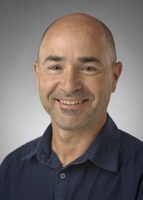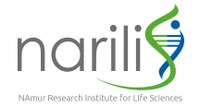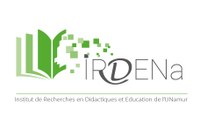Anne-Catherine Heuskin
Presentation
 As an FNRS (Belgian National Fund for Scientific Research) Research Fellow, Anne-Catherine Heuskin received her PhD thesis in 2013 from UNamur for her research in radiobiology. After a postdoctoral stay at the Lawrence Berkeley National Laboratory (CA, USA), she became an Assistant Professor in 2017 at the Department of Physics of UNamur, where she is now a Professor.
As an FNRS (Belgian National Fund for Scientific Research) Research Fellow, Anne-Catherine Heuskin received her PhD thesis in 2013 from UNamur for her research in radiobiology. After a postdoctoral stay at the Lawrence Berkeley National Laboratory (CA, USA), she became an Assistant Professor in 2017 at the Department of Physics of UNamur, where she is now a Professor.
Her research focuses on the interaction of ionizing radiation with living matter. The case of charged particles is particularly interesting because of their increasingly widespread use in radiotherapy (proton, carbon ions or the emergence of a particle usage). Beyond the DNA-centric approach followed the last decades, her interests are rather oriented towards the response to radiation and radiosensitizing agents of certain organelles and the tumor microenvironment.
Contact : Anne-Catherine Heuskin
Research
MIS PROJECT REPTAM | Reprogramming of macrophages to t M1 phenotype by concomitant exposure to gold nanoparticles and proton irradiation
High Z nanoparticles (NPs) have been described as a prime candidate for combined modalities over the past decade. New results have demonstrated a mechanism promoted by NPs linked to the production of reactive oxygen species (ROS) by inhibition of thioredoxin reductase (TrxR). This study proposes to design a new type of gold nanoparticle (GNP) and to evaluate in vitro and in vivo its effects on macrophages in a pancreatic tumor model. More specifically, an anti-MRC-GNP targeting the mannose C-type 1 receptor expressed by macrophages would have several important advantages:
- the direct targeting of innate immune cells
- a repolarization mechanism clearly identified by inhibition of TrxR
- and the possibility of offering synergies between immunotherapy and proton therapy.
This research project aims to consider the tumor microenvironment: by phagocytosis and thanks to targeting, we expect a strong internalization of GNPs, which could lead to the production of excess ROS by inhibition of TrxR. An imbalance in the detoxification of ROS is likely to lead to an increased expression of NF kappa-B and therefore to influence the phenotype of macrophages towards the anti-tumor and proinflammatory type M1.
The use of GNPs in combination with proton exposure, which has been shown to promote a mixed M1 / M2 phenotype, could lead to a complete change in the phenotype to type M1. In the context of proton therapy, with the opening of two new centers in Belgium, it is essential to understand the impact of the concomitant use of GNPs and charged particles on immune cells.
This abstract is also available in French here...
Her Mentor - Dr Sylvain Costes - Nasa

Her choice of mentor is Dr. Sylvain Costes, PI and project manager of the GeneLab at the Ames Research Center, one of NASA's ten research centers.
Dr. Costes' team studies the impact of space radiation on health, from the molecular level to the organism as a whole. The research conducted has both experimental and computational components. This last point is of particular interest:
Dr. Costes is the most appropriate person to bring a "simulation" aspect to her research thematics.
Membership
 |
 |












